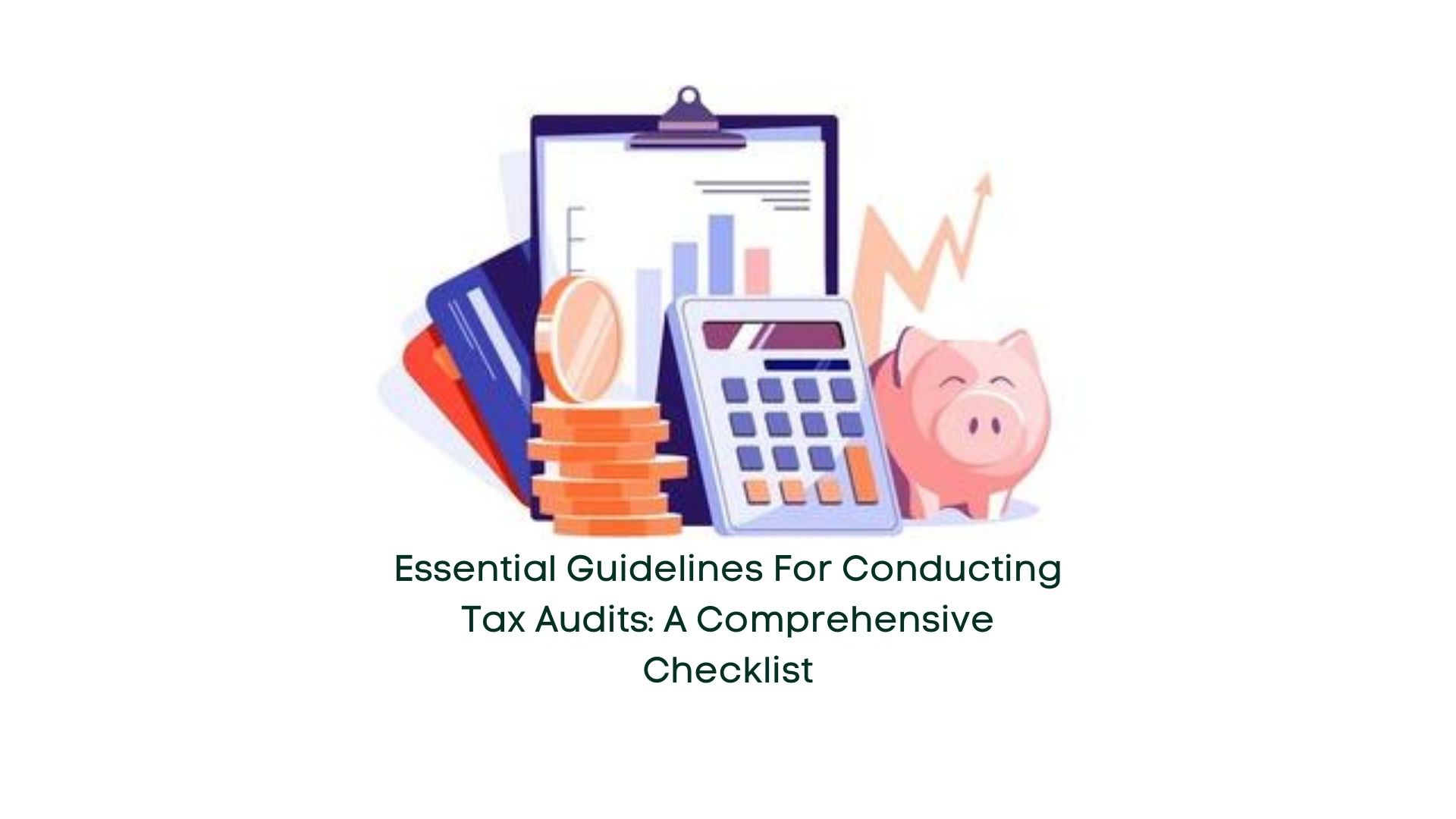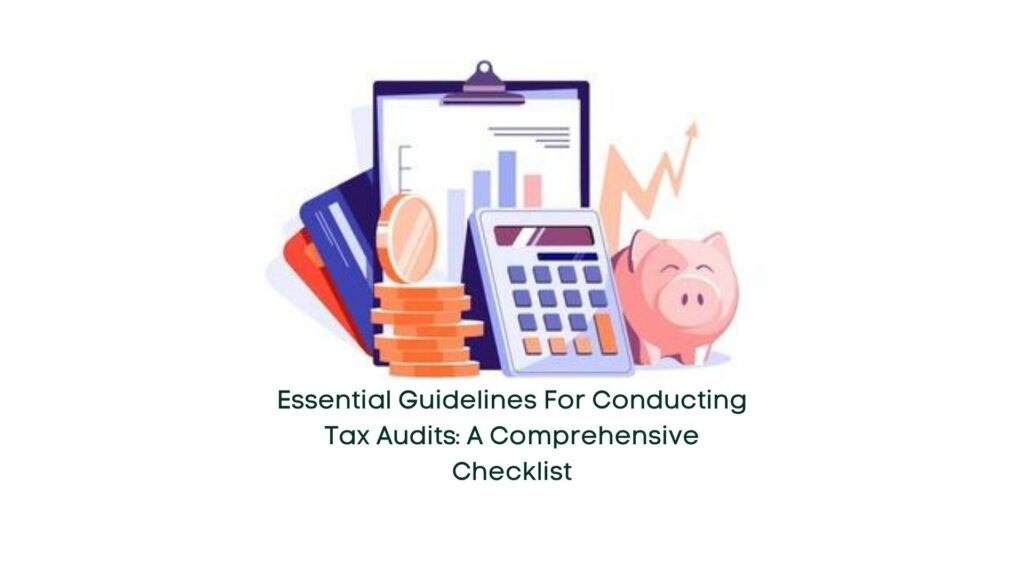
28 Feb Essential Guidelines for Conducting Tax Audits: A Comprehensive Checklist

Tax audits serve as a pivotal process mandated for entities surpassing specified thresholds outlined in the relevant act. As per Section 44AB of the act, a chartered accountant must conduct this audit, with the report filed electronically. The core objective revolves around ensuring financial accuracy, detecting fraud, and preventing tax evasion. This blog delves into understanding the Tax Audit Checklist issued by the Institute of Chartered Accountants of India (ICAI) and practical approaches to tax audits.
Applicability of Tax Audit:
In accordance with Section 44AB of the Income Tax Act, individuals or entities engaged in business or profession exceeding annual turnovers of Rs. 1 crore or Rs. 50 lakhs respectively are subject to audit. However, exceptions exist based on certain criteria such as opting for presumptive taxation schemes or recent budgetary relaxations.
Report Forms Involved:
Tax audits entail various report forms including Form 3CA for entities audited under other laws, Form 3CB for those audited solely under the Income Tax Act, Form 3CD, and Form 3CE for specific cases like foreign companies.
Understanding the Tax Audit Checklist:
ICAI periodically issues a Tax Audit checklist, encompassing key points categorized under various headings including General Information, Taxation and Accounting Policies, Documents/Records, Allowances/Disallowances, Expenses, Income, Information Regarding Business, and Other Important Aspects.
Approaching Tax Audit:
Effective tax audit procedures involve meticulous steps such as obtaining all relevant records, ensuring compliance with tax laws, vouching for expenses and incomes, scrutinizing important transactions, cross-verifying details, conducting ledger scrutiny, verifying deductions and allowances, and ultimately preparing the audit report with remarks against checklist points.
Summary:
This discussion underscores the significance of adhering to the Tax Audit Checklist provided by ICAI, emphasizing the comprehensive approach required during audits. By following these guidelines, auditors ensure thorough verification of an entity’s records and accounts, aligning with regulatory requirements and fostering financial transparency.


No Comments